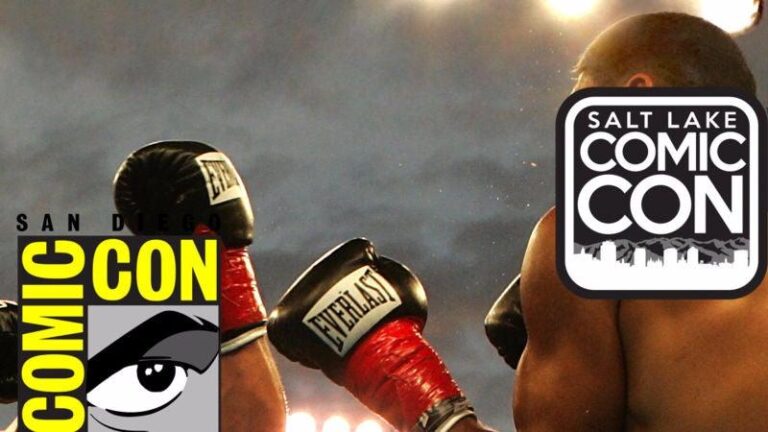San Diego Comic-Con Triumphs in Trademark Dispute, Reinforcing Exclusive Rights to Its Name
San Diego Comic-Con’s Legal Win: Cementing Sole Ownership of the “Comic-Con” Brand
In a landmark legal decision, San Diego Comic-Con has successfully defended its exclusive trademark rights to the term “Comic-Con.” This ruling confirms that only the original San Diego event holds the legal authority to use this iconic name, effectively barring other conventions from employing it in their branding or marketing efforts. The verdict highlights the critical importance of safeguarding well-established event names and solidifies San Diego Comic-Con’s dominant position within the pop culture convention landscape.
For other fan conventions such as Comic Con Palm Springs, this outcome presents several key challenges:
- Mandatory Rebranding: Continued use of “Comic-Con” in any promotional context may lead to legal repercussions, necessitating a name change.
- Distinct Market Positioning: Organizers must craft unique identities to differentiate their events and avoid brand confusion.
- Potential Licensing Agreements: Future collaborations involving the “Comic-Con” name may require formal permissions or licensing from San Diego Comic-Con’s organizers.
| Category | San Diego Comic-Con | Comic Con Palm Springs |
|---|---|---|
| Trademark Rights | Exclusive and legally enforced | None |
| Use of “Comic-Con” Name | Permitted | Prohibited without authorization |
| Brand Authority | Well-established | Requires reinvention |
| Legal Exposure | Minimal | High if unchanged |
Trademark Enforcement and Its Ripple Effects on Regional Fan Conventions
The court’s ruling in favor of San Diego Comic-Con signals a tightening legal environment around event naming rights within the convention circuit. Regional fan gatherings that have adopted similar names now face increased vulnerability to trademark infringement lawsuits. This precedent urges organizers, including those behind Comic Con Palm Springs, to reassess their branding strategies promptly to avoid costly legal disputes. Trademark law prioritizes the protection of distinctive names and the goodwill they generate, making it essential for smaller conventions to establish clear, original identities.
Event planners should adopt the following best practices:
- Perform thorough trademark clearance searches before settling on event names.
- Create unique visual identities such as logos and slogans that clearly distinguish their event.
- Engage intellectual property experts to ensure compliance with existing trademarks.
- Stay vigilant about potential branding conflicts and be ready to adapt swiftly.
| Factor | San Diego Comic-Con | Regional Events (e.g., Comic Con Palm Springs) |
|---|---|---|
| Trademark Status | Registered and actively defended | At risk |
| Brand Awareness | Globally recognized | Growing but mostly local |
| Legal Risk | Low | High without rebranding |
Essential Guidelines for Comic Con Palm Springs to Prevent Trademark Violations
To avoid legal entanglements similar to those faced by other regional conventions, Comic Con Palm Springs must fully grasp the extent of trademark protections surrounding the “Comic-Con” name. The recent court affirmation of San Diego Comic-Con’s rights highlights the premium placed on such event names within the comic convention sector. It is critical to refrain from using “Comic-Con” or closely related terms in any branding, advertising, or web domains without explicit authorization. Instead, adopting generic or uniquely crafted identifiers can help maintain legal compliance while preserving event distinctiveness.
Recommended steps for Comic Con Palm Springs include:
- Choosing an original event title that clearly sets it apart from San Diego Comic-Con’s trademark.
- Seeking advice from intellectual property attorneys before finalizing branding elements.
- Ensuring all marketing materials avoid ambiguous language that might suggest affiliation with San Diego Comic-Con.
- Educating partners and vendors about trademark boundaries to ensure consistent compliance.
| Risk | Recommended Mitigation |
|---|---|
| Trademark infringement lawsuits | Implement rebranding and distinct naming |
| Domain name conflicts | Register unique, original domain names |
| Consumer confusion | Communicate clearly about event independence |
Building Distinctive Local Conventions: Beyond Trademark Limitations
With the “Comic-Con” name now firmly protected, local fan conventions must pivot towards cultivating their own unique identities to thrive. Emphasizing exclusive themes, regional culture, and specialized programming can help smaller events resonate deeply with their communities. For instance, a convention in Austin might spotlight Texas-based comic artists and creators, offering attendees a one-of-a-kind experience that cannot be replicated by larger, trademarked events.
Investing in innovative marketing and leveraging social media platforms to foster direct engagement with fans will further enhance brand loyalty. Effective strategies include:
- Curating guest appearances that align with local interests or niche genres.
- Hosting interactive workshops that encourage attendee participation and creativity.
- Designing distinctive branding with original logos, merchandise, and visual themes.
- Partnering with local businesses to enrich the attendee experience and community ties.
| Approach | Expected Outcome |
|---|---|
| Exclusive local programming | Enhanced community engagement |
| Custom branding initiatives | Clear and memorable event identity |
| Strategic guest partnerships | Greater media coverage and fan interest |
| Interactive attendee activities | Increased participation and repeat attendance |
Looking Ahead: Navigating Trademark Boundaries in the Convention Sphere
The recent trademark ruling in favor of San Diego Comic-Con firmly establishes its exclusive rights to the “Comic-Con” name, setting a definitive legal standard for the industry. For Comic Con Palm Springs and similar regional events, this decision highlights the critical need for thoughtful branding strategies and awareness of intellectual property laws. As fan conventions continue to expand in popularity—industry reports show a 15% annual growth in attendance across U.S. conventions—organizers must carefully navigate trademark restrictions to avoid legal pitfalls and foster sustainable growth within their communities.







